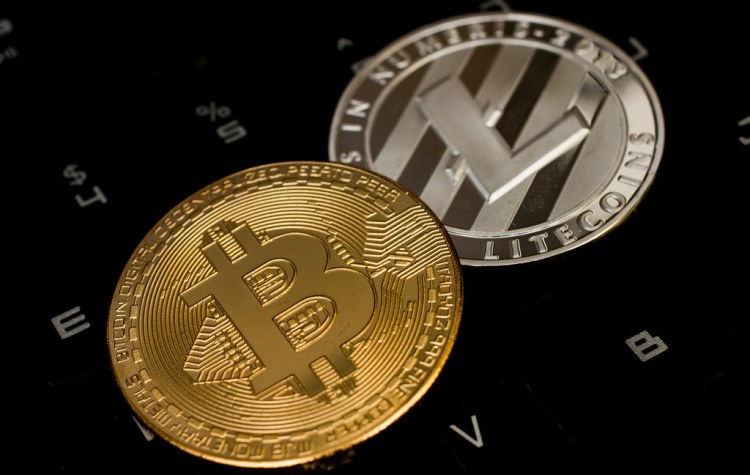By Ria Vijh.

The scepticism faced by cryptocurrencies today is understandable. After all, cryptocurrencies are the product of an esoteric technological innovation originally designed to conduct financial transactions in secrecy. However, cryptocurrencies now possess the same power that fiat currencies held originally, of altering the course of development and heavily impacting the world economy.
In the last decade, after the success of ‘Bitcoin’ and ‘Ethereum’, some 2300 cryptocurrencies have been launched worldwide. Governments across the world are debating how to regulate cryptocurrencies in order to prevent criminal activities; and to understand the negative and positive effects that cryptocurrencies might have on their economies. Some are also planning (or announcing) their own ‘central bank digital currency’ (CBDC). Cryptocurrencies floated by private firms like Facebook (Libra) are also in progress.
Cryptocurrencies introduced by Governments
Venezuela as of now, is the only country where the government has introduced its own cryptocurrency – ‘Petro’. The government has taken out many schemes to promote its usage but hasn’t been successful so far. It is supposedly backed by 30 million barrels of petroleum reserves after a US sanction was imposed on them which brought it down from 5 billion barrels of petroleum.[1] While Russia has been contemplating over this decision, Iran has just announced its cryptocurrency ‘PayMon’, supported by four of the biggest Iranian banks, and backed by gold. One of the major motivations for Russia, Iran and Venezuela for launching their own cryptocurrency is to avoid US sanctions, have a higher exchange rate control, and sometimes find an alternative to a hyper-inflated national currency.
Countries like Bangladesh, Ecuador, Vietnam, China, Sweden, India, Thailand, Russia and Bolivia have either highly discouraged the use of Bitcoins or completely banned them.
With the rapid rise of cryptocurrencies, governments all over the world, in a bid to keep up with them as well as to boost the development of their country, are coming up with their own digital currency/ CBDC.
Sweden, China, the Bahamas, Canada, Singapore, Thailand and Uruguay have either already launched, or are planning to launch their own CBDC. Their objectives are different, from financial inclusion, decreased usage of cash, cutting costs, increasing efficiency and lowering risks in cross border payments, to keeping a check on money laundering, black money, and enhancing cyber security.[2]
UNICEF has launched a cryptocurrency fund in order to be in line with the growing trend of cryptocurrencies and its wide usage, and to take forward its objective of a digital economy. Although according to the IMF, evidence of demand of CBDCs is doubtful as of now.[3]
The future of cryptocurrency
India, in its ‘Banning of Cryptocurrency & Regulation of Official Digital Currency Bill, 2019’ banned the use of cryptocurrencies, it also opened up a gateway for a digital rupee which the RBI in consultation with the Government of India may want to introduce at some point in the future when they feel the economy is ready for it.
LIBRA, a cryptocurrency yet to be launched by Facebook, if successful, has the power to dominate the cryptocurrency market. In fact, the announcement of Libra itself led to a surge in the prices of other cryptocurrencies, showing from the beginning, the power Libra possesses.[4] Each Libra coin is supposed to be backed by stable and liquid high-quality assets, and the value of Libra will be linked to a basket of fiat currencies.
The US Dollar, being the world’s reserve currency, is arguably the most powerful currency. Cryptocurrency with its rapid emergence has threatened the power of the US Dollar. If cryptocurrencies are given the right kind and amount of support and resources, it could someday dethrone the U.S dollar as the world’s most powerful currency.
Many researchers have expressed fears of having a currency war in the future due to the irrationality of the political leaders. If this happens, it will be a great opportunity for cryptocurrencies to extend its reach further and move one more step towards becoming a global currency as well as a safe investment destination like gold.[5]
[1] Partz, H. (2019), ‘Venezuela Cuts Petro’s Backing from 5B Barrels of Oil to 30M: Reuters’, at <https://cointelegraph.com/news/venezuela-cuts-petros-backing-from-5b-barrels-of-oil-to-30m-reuters>
[2] Helms, K. (2019), ‘Central Banks Worldwide Testing Their Own Digital Currencies - Bitcoin News’, at <https://news.bitcoin.com/central-banks-testing-digital-currencies/>
[3] Zhao, W. (2019), ‘UNICEF Launches Cryptocurrency Fund to Back Open Source Technology – CoinDesk’ at <https://www.coindesk.com/unicef-launches-cryptocurrency-fund-to-back-open-source-technology>
[4] Taskinsoy, J. (2019), ‘Facebook’s Libra: Big Bang or Big Crunch? A Technical Perspective and Challenges for Cryptocurrencies’, at <https://papers.ssrn.com/sol3/papers.cfm?abstract_id=3445150>
[5] Casey, M. (2019), ‘Trump's Currency War With China Could Be Bitcoin's Do-or-Die Moment – CoinDesk’, at <https://www.coindesk.com/trumps-currency-war-with-china-is-bitcoins-do-or-die-moment>
Comments